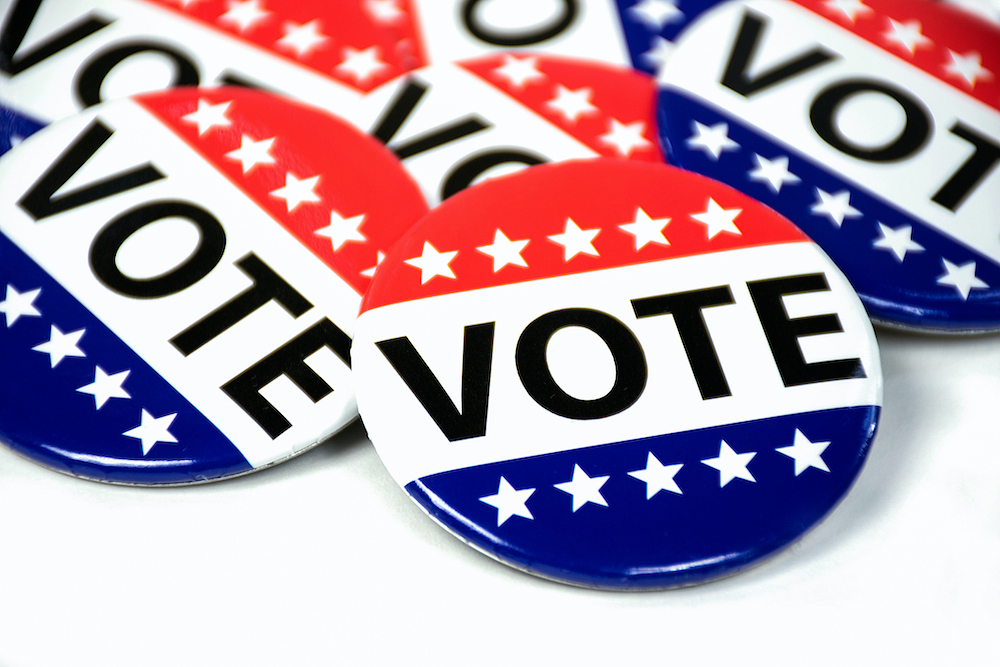Over the last several months, we’ve all become more vividly aware of how abrasive, adversarial and impolite our popular culture has become. An earlier time of civil discourse and cooperation toward common goods has been lost or overwhelmed by self-interest, or avarice, or the pursuit of power.
Over the last several weeks, I was looking through some of the documents that the U.S. bishops have shared every four years since 1976 regarding political responsibility and faithful citizenship. Available online, these documents are provided as guidance for Catholics to help us reflect on the serious responsibility we have to participate in the civic culture, and how Catholic Social Teaching should guide that participation.
The following passages were written by the U.S. bishops in 1996 to help us carry out our political responsibility as disciples and as citizens. They are as helpful today as they were 24 years ago.
“While it is increasingly acknowledged that major public issues have clear moral dimensions and religious values have significant public consequences, there is often confusion and controversy over the participation of religious groups in public life.
“The religious community has important responsibilities in political life. We believe our nation is enriched and our traditions of pluralism enhanced when religious groups join with others in the debate over the policies and vision that ought to guide our nation….
“The national debate is not (emphasis added) enhanced by ignoring or ruling out the contributions of citizens because their convictions are grounded in religious belief.
“We welcome the growing discussion of the role of moral values in public life and religious groups in the public square. We recognize that religious voices in public life must persuade, not just proclaim, and that the test of our witness is not only how strongly we believe, but how effectively we persuade and translate our beliefs into action.
“The challenge for our Church is to be principled without being ideological, to be political without being partisan, to be civil without being soft, to be involved without being used.
“Our moral framework does not easily fit the categories of right or left, Republican or Democrat. We are called to measure every party and movement by how its agenda touches human life and human dignity.”
I would add how its agenda touches all human life and all human dignity!
It is a profound blessing and opportunity for us citizens to have a say, even if it is only one voice or one vote among millions.
Yet, I wonder if the attitude reflected in the Gospel parable we heard several weeks ago about the king inviting his people to a significant event is not what we experience in our wider culture.
It is not always clear whether everyone takes this opportunity to participate in our nation’s civic order very seriously or approaches it with much reflection or excitement.
We’ve all seen “spontaneous” person-on-the-street interviews where people at random are asked what would seem to be basic questions of civics. Who is the president? Who is the governor? What are the branches of government? Who is running for office?
So many times the response is one of confusion or silence. Those you would think should know or have an interest do not.
I would imagine that most people hope for and truly desire a land that is like the one the prophet Isaiah described as a place of rich food and choice wines. A place that helps us overcome illness and the dangers to life. A place that promotes life and does not embrace death — “the veil that veils all people and the web that is woven over all nations” (25:7).
This speaks of God’s kingdom in heaven and of the Eucharist, but it applies to our aspirations in this life as well. What we most long for is security, peace and prosperity, even if we don’t always know the best way to achieve it.
St. Paul, in his letter to the Philippians, helps us with the approach or attitude that should accompany us if we hope to experience such peace, prosperity and abundance in our spiritual or material life.
It is an attitude of disinterest in ourselves, whether we achieve abundance or experience want. It is an attitude that looks to God’s will for us and his providential care. It is a spirit of detachment from worldly things, from power, possessions and empty pleasures.
This is not an attitude of trying to gain as much as we can, as fast as we can for ourselves, or preoccupation with how we can keep and protect what we already have. It is seeking to provide for the needs of others and seeking the best for everyone.
It is about pursuing the common good, not just our own. It is living with disinterested self-sacrifice rather than myopic self-interest.
As we approach Election Day, we should look for guidance and help from our Lord. When we do this, we are given grace to place in proper perspective our relationship to God in the spiritual life and our relationships to others in social and civic life, in order to offer the most benefit to all whom we encounter.
Editor’s note: Bishop Knestout and Bishop Michael F. Burbidge of the Diocese of Arlington have written a letter to Virginia Catholics regarding the election. You can read the letter at https://vacatholic.org/wp-content/uploads/2020/09/BishopsPreElectionLetter-2020.pdf

